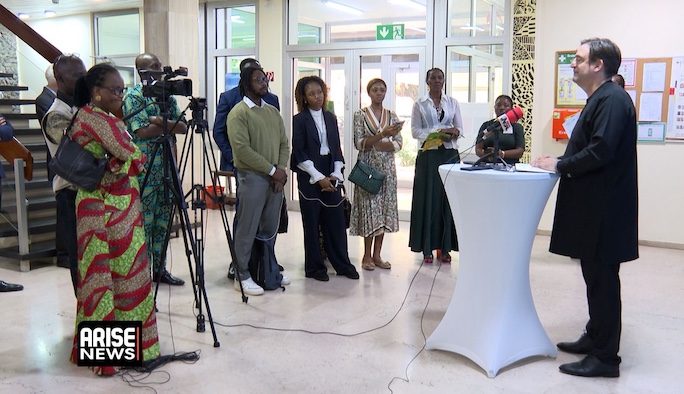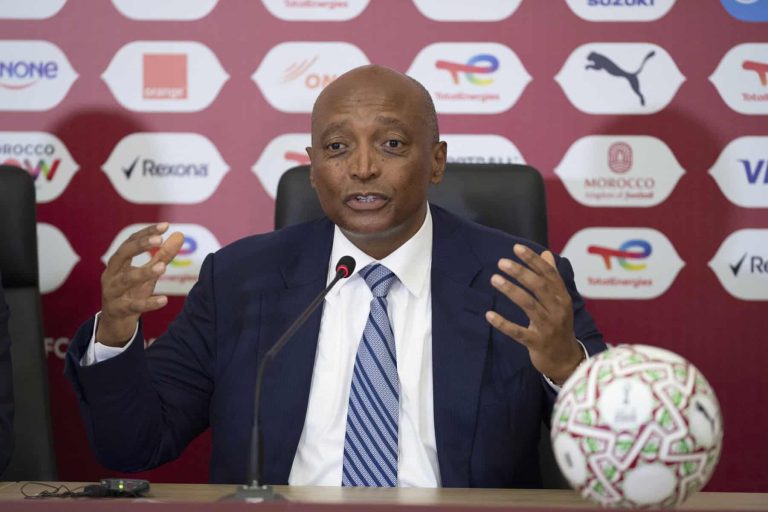
The usually calm German Consulate in Lagos came alive on Monday, as a delegation of German filmmakers and media executives arrived for what has been described as the first outreach from Germany’s movie sector to Nigeria. The mission: to deepen creative and economic collaborations with Nollywood, Africa’s largest film industry.

Inside the consulate’s bright hall, the atmosphere blended diplomacy with creativity. Cameras clicked and microphones tilted forward as the German Consul General in Lagos, Daniel Krull, dressed in a sleek black native attire (senator style), addressed the press while standing behind a minimalist white round podium.
He spoke of partnership and potential, describing Nollywood as “an important piece of Nigeria’s industry.”
“This is the first outreach from Germany’s movie sector to Nigeria,” Krull said, emphasizing that the visit reflects growing interest in the country’s vibrant creative scene and room for collaboration.

Krull also highlighted Germany’s active engagement with Nigeria, revealing that the consulate processes over 10,000 visas annually and aims to make access smoother for students and professionals seeking study and work opportunities abroad.
After the press session, guests were ushered upstairs into a more relaxed setting for presentations and networking. Representatives from Acromax Media GmbH, Cinetica GmbH, Evolution Film UG, and Kunzberg GmbH showcased their expertise in post-production, storytelling, and creative technology.

Conversations buzzed across white clothed tables as filmmakers from both nations exchanged ideas over soft jazz music and Ofada rice, mushroom suya, mango salad and healthy delights prepared by Veggie Victory, Nigeria’s first vegan restaurant.

In a brief interview, Veggie Victory co-founder, Hakeem Jimo, shared his passion for healthier Nigerian cuisine.
“We wanted to give Nigerians options,” he said. “Food that tastes like meat but is made from grains. It’s still rich, still Nigerian, just healthier.”

As the afternoon mellowed, guests moved into a softly lit room arranged in an arch shaped seating layout for a film screening, a joint German-Nigerian production exploring motherhood, faith, and cultural identity. The audience watched attentively, ending with quiet applause as the credits rolled.
“The goal is not just to return artefacts but to create ongoing dialogue between artists and cultures,” one of the German producers, Mark, remarked after the screening.

The visit not only signified growing cinematic ties but also a renewed chapter in Nigeria–Germany creative relations, one built on mutual respect, artistic exchange, and shared storytelling.

Ademide Adebayo



